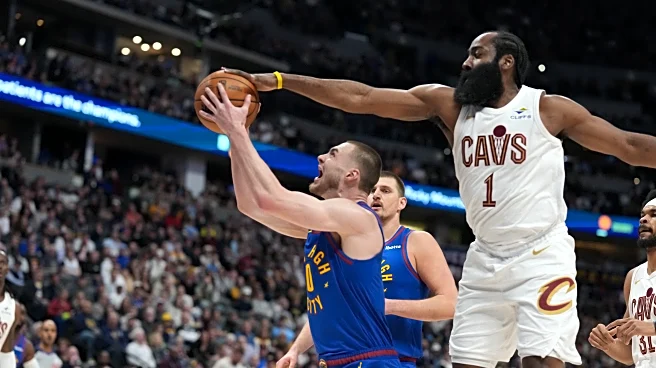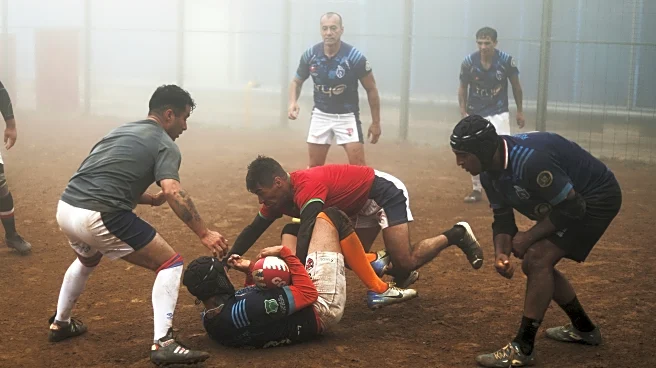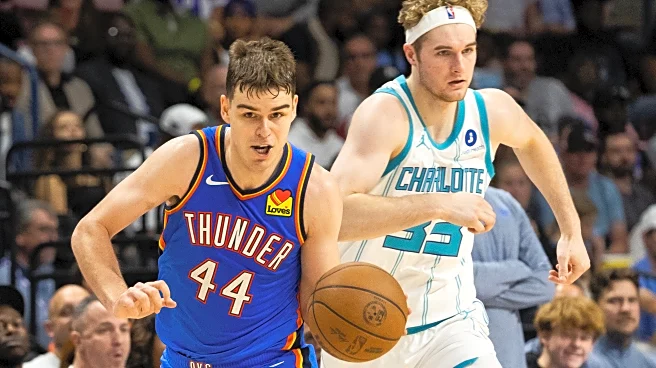What's Happening?
Chelsea head coach Enzo Maresca has responded to criticism regarding his decision to rotate the team heavily during their recent Champions League match against Qarabag, which ended in a 2-2 draw. Despite
Chelsea's dominance in possession and shot attempts, the team faced defensive challenges, leading to Qarabag's equalizer and a penalty. Maresca defended his strategy, emphasizing the need to manage player workload, especially after the Club World Cup. He made seven changes from the lineup that defeated Tottenham Hotspur, aiming to rest key players like Moises Caicedo and Enzo Fernandez. However, due to an early injury to Romeo Lavia, Caicedo had to play, while Fernandez was introduced in the second half.
Why It's Important?
The decision to rotate players highlights the challenges faced by top football clubs in managing player fitness and performance across multiple competitions. Chelsea's approach reflects the broader strategy of balancing immediate match outcomes with long-term player health and team success. The criticism underscores the pressure on coaches to deliver consistent results while navigating the demands of a packed schedule. This situation is significant for Chelsea's ongoing performance in the Champions League and their upcoming Premier League matches, impacting their standing in both competitions.
What's Next?
Chelsea will return to London to prepare for their Premier League clash with Wolves. The team will need to address defensive vulnerabilities and ensure key players are fit for upcoming matches. Maresca's rotation strategy may continue to be scrutinized, especially if results do not improve. The team's performance against Wolves will be closely watched as an indicator of their ability to adapt and overcome recent challenges.
Beyond the Headlines
The situation raises questions about the broader implications of player rotation in elite football. It highlights the ethical considerations of player welfare versus competitive success. Long-term, this could influence how clubs approach squad management and the development of young players, like Jorrel Hato, who are thrust into high-pressure situations.










